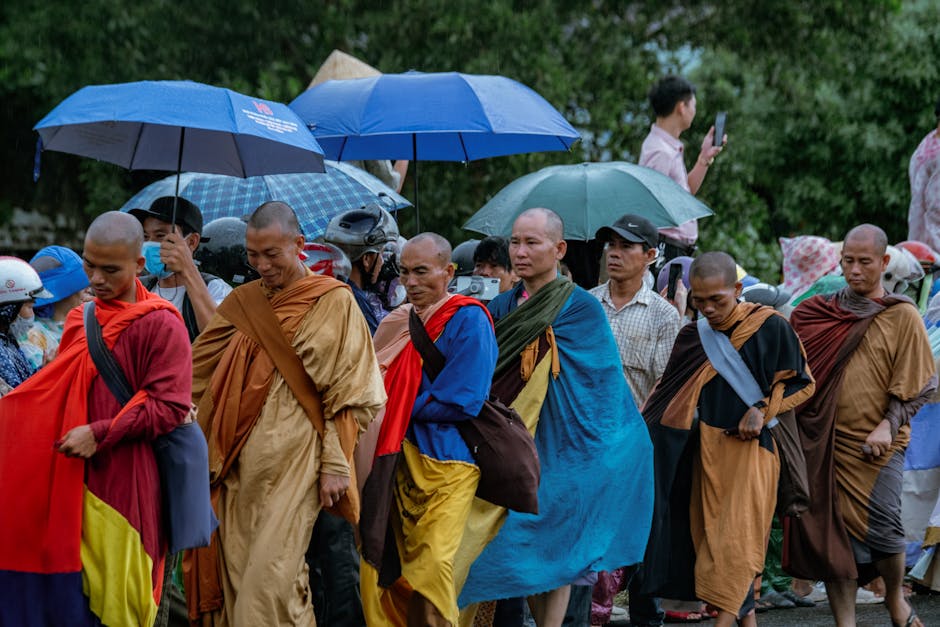The human yearning for something beyond the tangible world has manifested in diverse forms throughout history. From ancient rituals to modern mindfulness practices, spirituality, in its myriad expressions, touches upon fundamental questions about meaning, purpose, and connection. This exploration delves into the complex relationship between spirituality and religion, examining whether this profound experience is fundamentally a solitary journey or a shared experience, woven into the fabric of human connection.
A core contention surrounding spirituality is its inherent personal nature. Individual encounters with the divine, the transcendent, or the universal often take on unique and profoundly personal forms. Philosophical perspectives, such as existentialism, emphasize the subjective and individual interpretation of experience. In this view, spirituality is a deeply personal quest for self-discovery and meaning, often untethered from traditional religious frameworks. It is a dialogue with oneself, a process of introspection and contemplation, ultimately leading to a unique relationship with the unseen. The narratives of individuals seeking spiritual awakening often highlight the private nature of the experience, from moments of profound insight in meditation to personal encounters with a higher power. This solitary aspect, this inner journey, is undeniably a significant component of the spiritual tapestry.
However, the notion of spirituality as a solitary endeavour risks neglecting the crucial role of community and shared experience in its evolution. Religious traditions, while often structured around dogmatic beliefs, also provide frameworks for communal practice and shared rituals. These rituals, from prayer gatherings to communal meals, foster a sense of belonging and shared purpose that profoundly influences the individual’s spiritual growth. A strong sense of community fosters mutual support, provides opportunities for spiritual guidance from experienced practitioners, and creates an environment where individuals can explore their faith in the company of like-minded souls. The collective rituals and shared narratives of faith often serve as a foundation for the spiritual beliefs of individuals.
Furthermore, spirituality transcends religious boundaries. Practices like yoga, meditation, and mindfulness, while rooted in specific traditions, are often adopted and adapted by individuals seeking a personal connection with their inner selves. The rise of secular spiritual practices underscores the potential for a shared spiritual experience without adhering to established religious dogmas. In these instances, community emerges through shared activities, workshops, and online forums, providing support and inspiration to those seeking a deeper understanding of themselves. The universality of human experience with existential questions can serve as a unifying element among individuals with different backgrounds.
The role of religious structures in shaping spirituality cannot be overstated. Religious institutions, whether large or small, offer a structured framework for spiritual exploration. This includes defining doctrines, providing spiritual leaders, and constructing sacred spaces. These frameworks, while sometimes rigid, often provide a starting point for individual reflection and personal interpretation, acting as catalysts for spiritual awakening within individuals. The shared history and tradition of a faith can nourish a sense of communal identity and understanding, allowing individuals to access a wealth of spiritual insight inherited from generations past. However, the interpretation of religious texts and rituals remains intrinsically personal, showcasing the interplay between shared tradition and individual experience.
In the realm of art and literature, the human experience of spirituality has found remarkable expression. Great works of art, from sacred scriptures to modern paintings, often reflect universal themes of love, loss, and the search for meaning. These shared stories, these reflections on the human condition, resonate with individuals across cultures and time periods. This capacity to articulate spiritual experiences through art fosters a sense of shared understanding and empathy.
Ultimately, the answer to whether spirituality is a personal or shared experience is multifaceted. It is not an either/or proposition, but rather a complex interplay between individual introspection and communal support. The solitary quest for self-understanding and meaning is interwoven with the shared experiences and traditions that nurture spiritual growth. Spirituality, in its multifaceted forms, encompasses a personal journey of discovery and, simultaneously, a collective endeavour, enriched by the shared insights and experiences of others. Recognizing this duality, appreciating the profound interplay between individual experience and communal practice, reveals a fuller understanding of the spiritual dimension of the human experience. The journey itself, whether solitary or shared, is the essence of the exploration, fostering growth and a deeper understanding of ourselves and the world around us.






